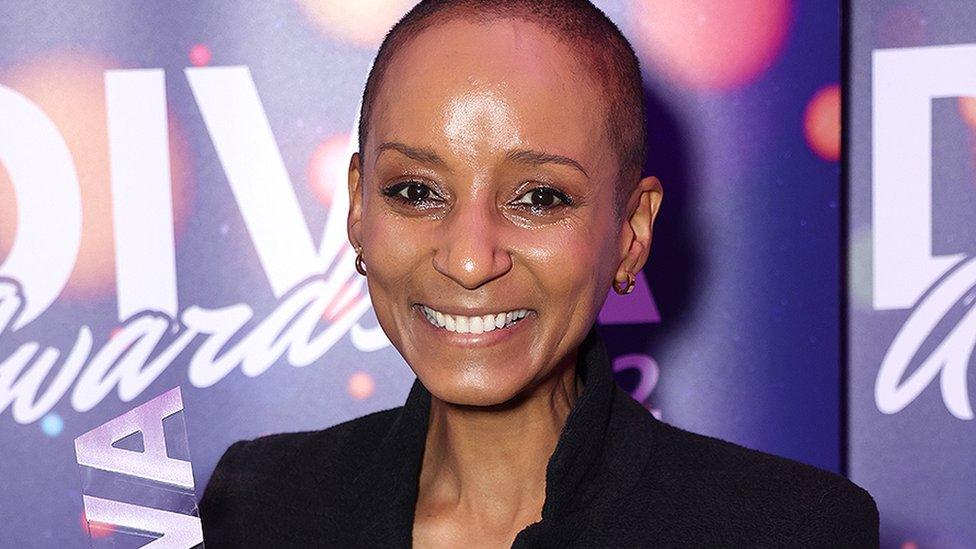Bowel cancer: Call to lower screening age in Wales sooner
- Published
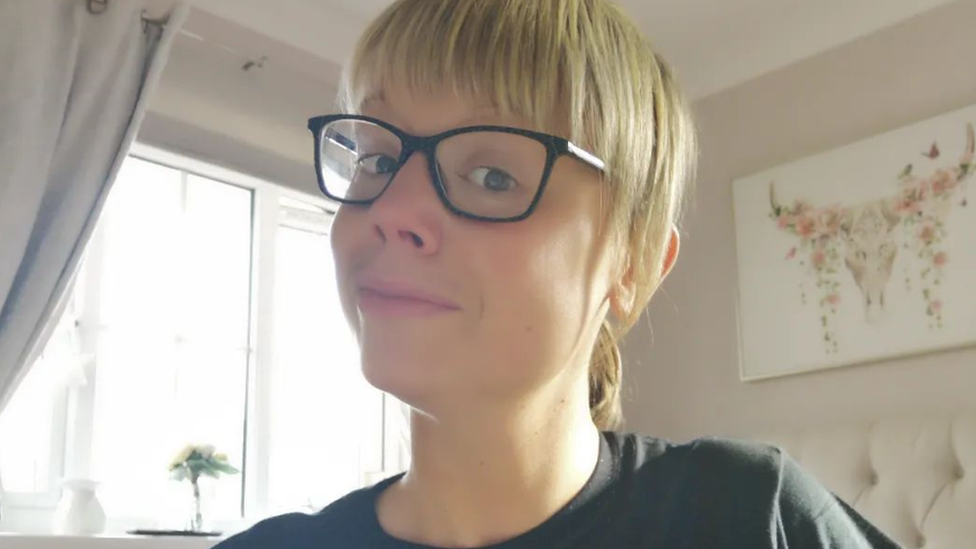
Rachel Reed was diagnosed at 33 and campaigns to raise awareness of bowel cancer in younger people
Wales must move faster to lower the age for bowel cancer screening, a man who lost his wife to the disease at 45 has said.
Health Minister Eluned Morgan said the age had already been lowered from 60 to 58, and this would be reduced to 50 by 2024 despite Covid slowing things down.
A woman diagnosed at 33 said medics often failed to understand younger people could have bowel cancer.
Public Health Wales (PHW) said in 2019, 13.8% of those diagnosed were under 58.

Dame Deborah presented the BBC's You, Me and the Big C and touched the lives of many
Last month, podcast host and campaigner Dame Deborah James died after being diagnosed with stage three bowel cancer at the age of 35 in December 2016.
Her death has prompted debate about bowel cancer in younger people and who should be screened.
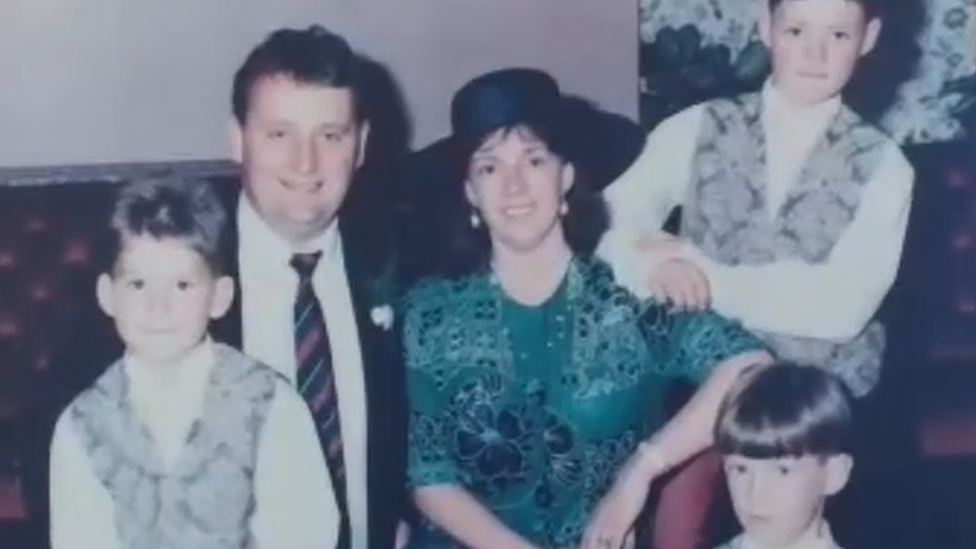
Nick Phillips has been campaigning for the screening programme to be expanded since his wife died from bowel cancer 16 years ago
Nick Phillips, 64, from Pontypridd, Rhondda Cynon Taf, lost his wife Marcia to bowel cancer 16 years ago, when she was just 45.
He has been campaigning for the screening programme to be expanded ever since and said he had seen many promises by successive health ministers come to nothing.
"They keep on promising, promising, promising and they've never delivered on the pledges," he said.
"It needs to be done, quicker, there's been so many different excuses all over the years and I've read them all."
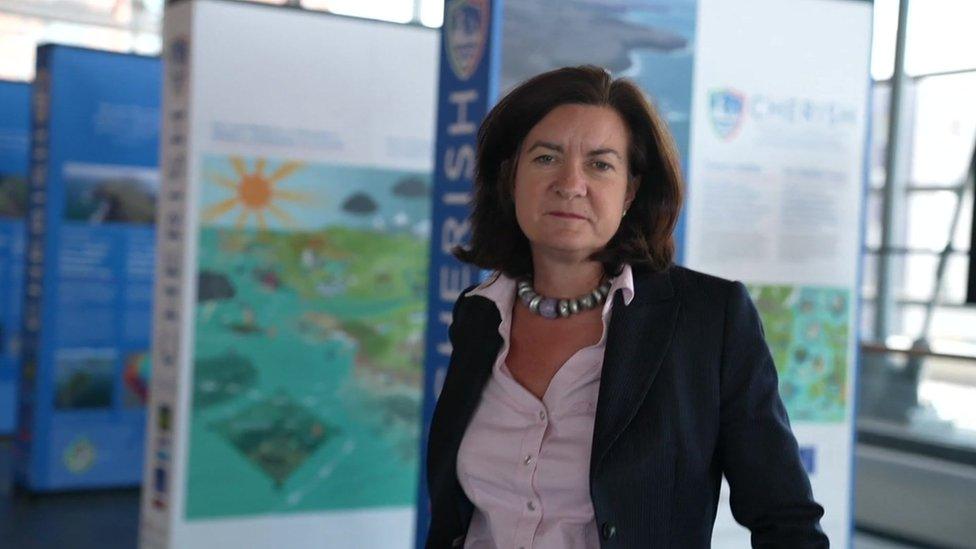
Eluned Morgan said the screening programme will start at the age of 50 by 2024
But Wales Health Minister Ms Morgan said Wales had a "very, very clear plan".
"We were in the process of rolling out much quicker but of course the pandemic has got in our way," she said, adding: "We will be down to the age of 50 by 2024."
She said expanding the programme had to be done in tandem with increasing endoscopy, external capacity.
"That's not something you can switch on overnight," she said.
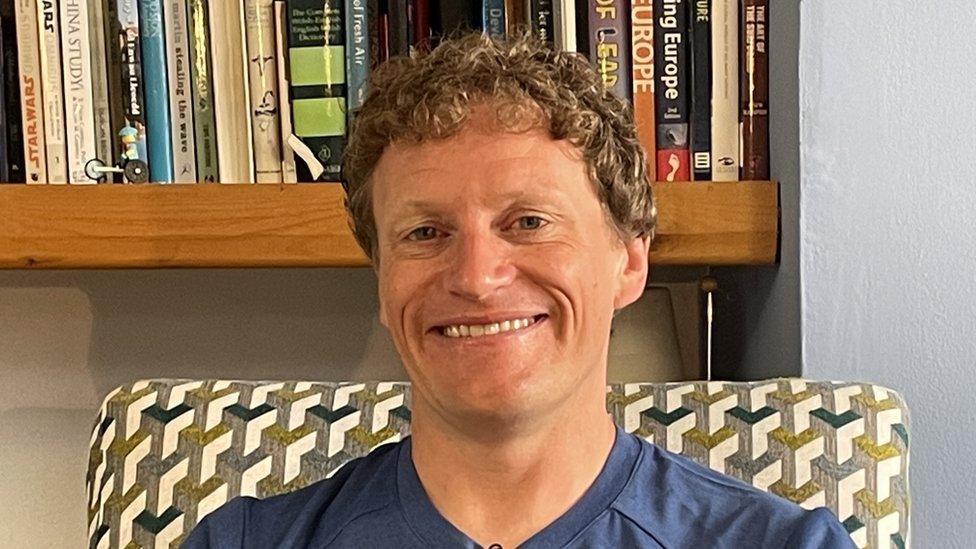
Guto Roberts was diagnosed with bowel cancer when he was 40
Guto Roberts from Y Felinheli in Gwynedd was diagnosed with bowel cancer in November 2020 at the age of 40.
He had a successful operation to remove the tumour followed by chemotherapy and is currently clear of cancer.
Asked about the plan to lower the screening age to 50, he said: "It's a step in the right direction but I think they should start screening people when they are 40."
He added: "The symptoms can be mild until it's too late... so if they start screening at 40 many lives would be saved."
Bowel Cancer UK said it had campaigned for the Welsh government to commit to lower the screening age to 50, in line with the UK National Screening Committee's recommendations and international best practice, for many years.
Its Chief Executive Genevieve Edwards said: "Although bowel cancer is more common in people aged over 50, it can affect people of all ages.
She said every year more than 2,600 people under 50 were diagnosed with the disease in the UK, with the number increasing.
"Despite this, awareness remains low that it can affect younger people."
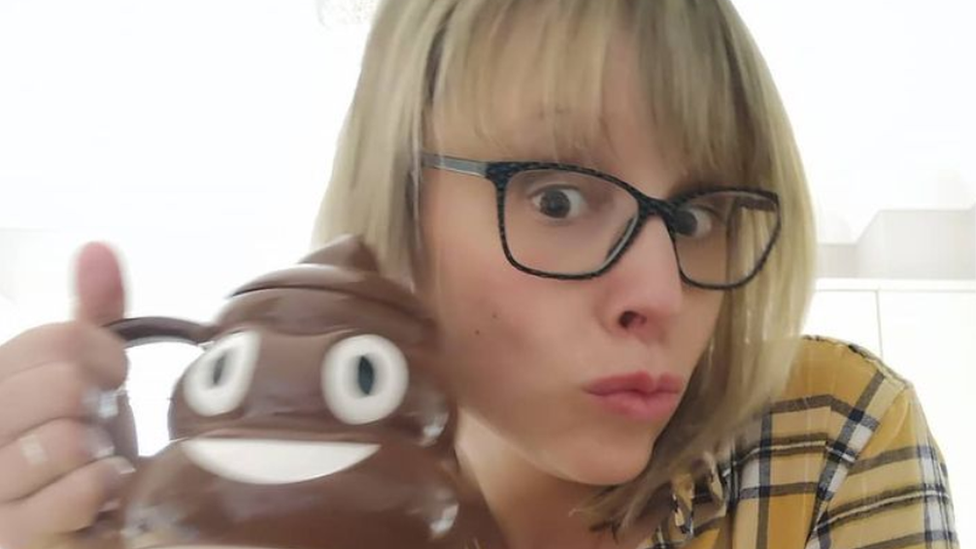
Rachel Reed says medics often fail to understand younger people could have bowel cancer
Rachel Reed from south Wales was diagnosed with bowel cancer when she was 33.
She first went to her GP because she was having persistent abdominal pain, feeling tired, suffering a sudden urgency to go to the toilet, pain and diarrhoea after eating gluten or dairy and weight loss.
"Every time I turned up at the GP I was just told there's nothing to worry about," she said.
"I was told I was too young for anything serious."
She was not concerned she may have bowel cancer: "My only knowledge of bowel cancer symptoms was blood in the stool, which I didn't have," she said.
In both April and May 2018 she was admitted to hospital and doctors diagnosed her with an ovarian cyst. She had a CT scan, MRI scan and ultrasound, but nothing else was found.
She said about 18 months after first seeing her GP her dermatologist referred her to a gastroenterologist after she questioned if her symptoms could be down to her psoriasis medication.
She was then given a colonoscopy.
"I could see the cancer on the screen," she said.
A biopsy followed and two weeks later she was told she had bowel cancer.

"I was in shock," she recalled.
The cancer had spread outside the bowel and the ovarian cyst that was picked up a few months earlier was part of this spread.
Within two weeks she had an operation to remove the tumour.
"I was in the hospital, I remember crying to my consultant saying 'I don't want to die'...
"In your head you plan your funeral."
"All you can do really is keep pushing and keep going because you've got no option."
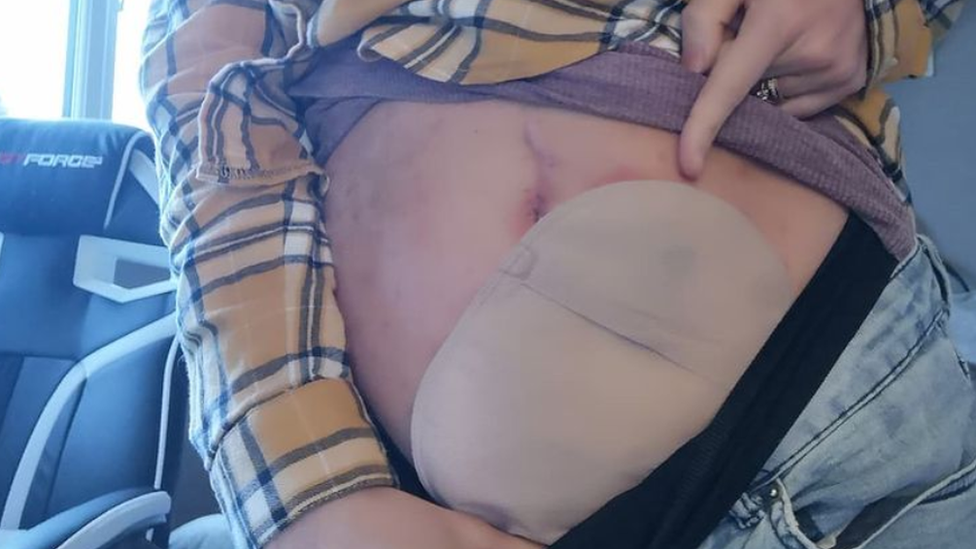
Rachel, who now has a stoma, said doctors had found no evidence of cancer since April 2020
She had two sections of her bowel removed, a stent in her bladder, was fitted with a stoma and was given a hysterectomy, ending her plans to have children.
Six months of chemotherapy followed, but in September 2019, a small lesion was found on her lung, another operation and three months of gruelling chemotherapy followed.
Rachel is now 37 and doctors had found no evidence of cancer since April 2020.
Despite her long road to her diagnosis she was not critical of the NHS: "As soon as they found out what it was, I was in surgery. They were very quick and I'm forever grateful for them because they saved my life," she said.
The experience of being diagnosed with bowel cancer has had a big impact on Rachel: "I always say it may have gone out of your body but it's never out of your mind.
"You've got this trauma, it is something you can't get rid of."
She said raising awareness of cancer in young people had been a help.
"Because my age, I was diagnosed with stage four and there's loads and loads of patients my age that are stage four and have life-changing surgery, because our age stops us from getting the checks that we need.
"Even now, when I see healthcare professionals, they say 'you're a rare case, you're really young to have bowel cancer' - so I just use my experience to educate junior doctors, nurses anybody I come into contact with," she said.
She wants to see the age of screening lowered but believed screening alone was not the answer.
She encouraged younger people with symptoms to ask their GP for a symptomatic FIT test, external, download Bowel Cancer UK's symptom diary, external to take along to the GP appointment and pointed them to the charity's Never Too Young, external campaign.
She said she also wanted healthcare professionals to "rule cancer out first, then look at the other options".
How does Wales' screening programme compare with other UK nations?
People in England aged 60-74 who are registered with a GP are automatically sent an NHS bowel cancer screening kit every two years.
In Scotland, screening starts from the age of 50.
People in Wales are invited to take part in bowel-cancer screening ever two years between the ages of 58 and 74.
How many people in Wales are diagnosed with bowel cancer every year?
PHW said 2,513 people were diagnosed with bowel cancer in 2019, the latest year of analysis.
How many people in Wales are diagnosed under 58 years of age (when the screening starts)?
PHW said in 2019, 13.8% of those diagnosed were under the age of 58 - about one in seven diagnoses.
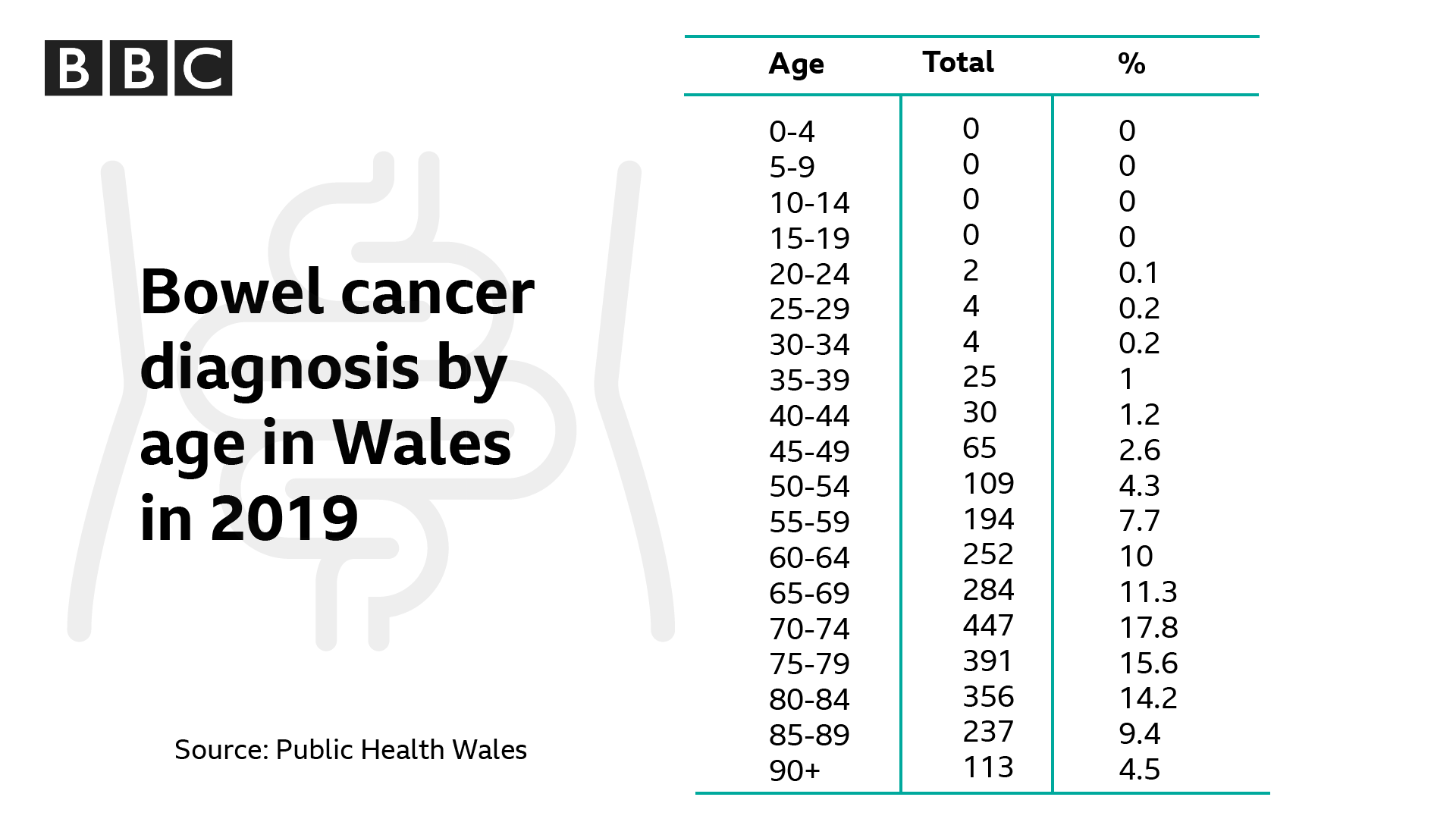

How does bowel cancer screening work?
PHW said more than 190,000 people in Wales did a bowel screening test every year through Bowel Screening Wales.
The test kit is designed to measure how much blood is in your poo and can be completed at home.
Since 2019 the tests have been carried out using a faecal immunochemical testing (FIT) kit, which can detect blood at a lower level than the previous test used, meaning more bowel cancers can be detected.
The screening test does not tell people if they have bowel cancer, the results will say whether they need further tests such as a colonoscopy.
- Published2 July 2022
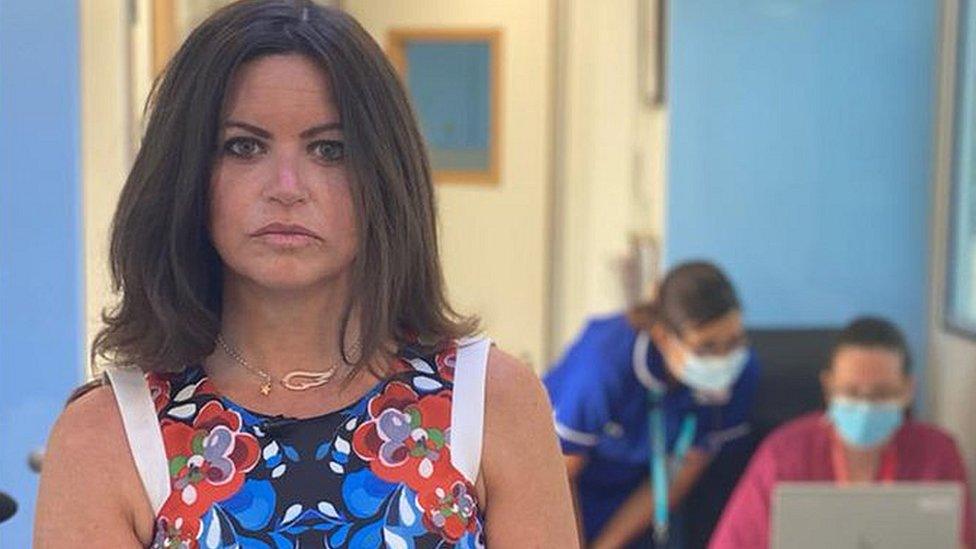
- Published29 June 2022
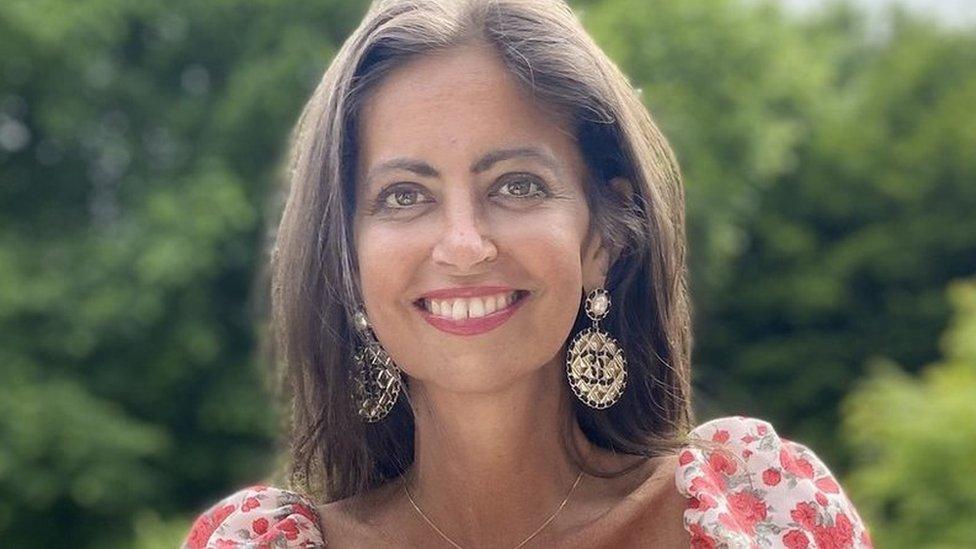
- Published29 June 2022
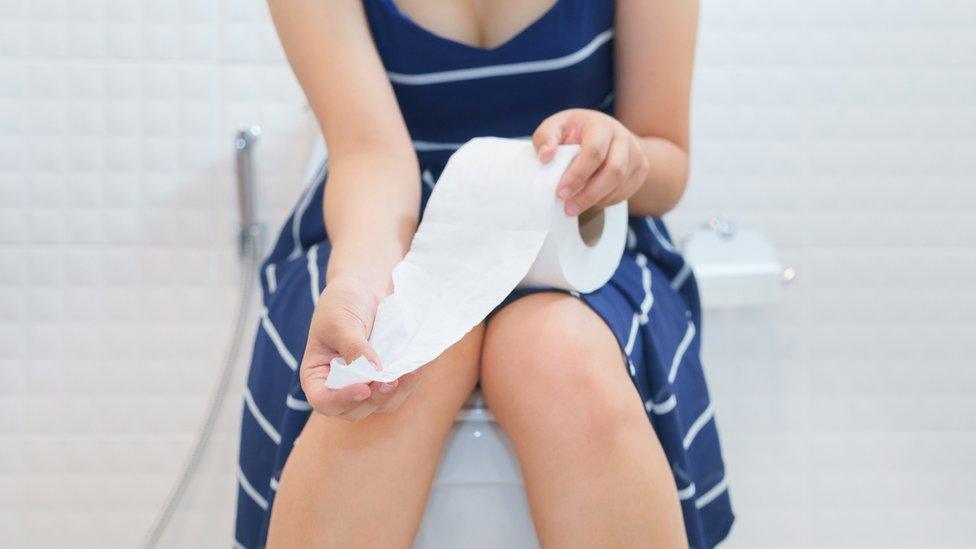
- Published27 June 2022
